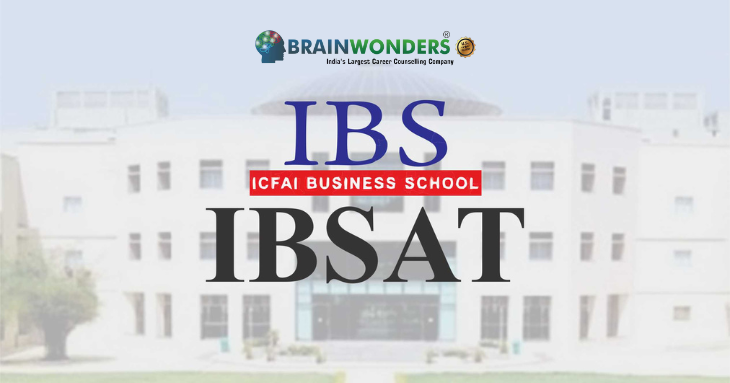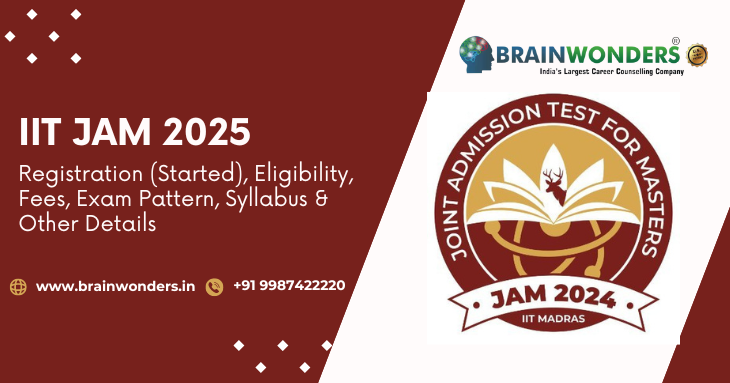

Let the best team of psychologists and career counsellors help you achieve your dream career!
Get your U.S. Patented DMIT analysis and lead the way to a happy and successful career
Blog
06 February,2024 | By Brainwonders
![LLB [Bachelor of Legislative Law]](https://www.brainwonders.in/blog_feature_images/2024/05/2024-05-29-18-50-28LLB_Bachelor_of_Legislative_Law_Course,_Full_Form,_Admission,_Entrance_Exam,_Eligibility,_Fees,_Syllabus,_Salary.webp)
LLB full form is Bachelor of Laws or Bachelor of Legislative Laws. LLB course duration is 3 years (five years in the case of integrated programs), during which time it provides a comprehensive understanding of various aspects of law. LLB syllabus comprises courses such as Constitutional Law, Property Law, Corporate Law, Contract Law, Criminal Law, and Civil Law.
An LLB degree prepares individuals for traditional roles as lawyers or solicitors and unlocks opportunities in several legal and non-legal fields. Hence, LLB serves as more than just a foundation for a legal career; it opens doors to diverse career paths. LLB graduates can explore legal journalism, corporate law, civil services, academia, and politics. They can serve as legal advisors or consultants within corporations, ascend to positions of judges or magistrates, engage in legal journalism or academia, champion human rights advocacy, or analyze and research policies for governments or NGOs. Additionally, it equips them for corporate management roles that demand legal expertise, such as compliance officers, showcasing the degree's versatility and breadth.
In India, there are over 1,100 top LLB colleges, with more than 650 privately owned, over 130 government-owned, and the remaining 60+ falling under semi-government institutions.
LLB courses can be pursued by candidates who already have a bachelor's or even a master's degree in any subject. Many candidates who have pursued CA or CS also pursue LLB after completing their basic educational qualifications. Various formats of LLB courses are available, including 3-year LLB, 5-year integrated LLB, Online LLB, and LLB correspondence courses.
The eligibility criteria for LLB admission require candidates to complete 10+2+3, with a minimum of 45 per cent marks in aggregate for the general category and 40 per cent for the SC/ST category from a recognized board. Aspiring candidates can attend LLB entrance exams such as CLAT, AILET, LSAT India, etc., to gain admission into top law colleges. Some top law colleges for 3-year LLB courses include NLUs, Banaras Hindu University, Lucknow University, RGSOIPL, etc.
The following table briefly overviews Bachelor of Laws (LLB) details, including course structure, duration, entrance exams, annual fees, and top recruiters.
| LLB Full Form in India | Bachelor of Legislative Law (Latin: Legum Baccalaureus) |
| LLB Course Duration | 3 Years |
| LLB Course Eligibility | The basic eligibility is to have a graduation degree from a recognized college. |
| LLB Admission | The general admission method to Bachelor of Legislative Laws is through entrances, but few universities like SRM University, etc also offer admission based on merit. |
| LLB Course Subjects | Core subjects of this course are Criminal Law, Family Law, International Law, Cyber Law, Corporate Law, etc. |
| LLB Industries | LLB holders are open to exploring various industries like Law firms, MNCs, Government Agencies, Judicial Bodies etc. |
| LLB Jobs | The job roles offered to these candidates are lawyer, advocate, paralegal, law officer, Legal Associate, Corporate Lawyer, lecturer, etc. |
| LLB Course Salary | The average annual salary of LLB aspirants ranges from INR 4 to 6 LPA. |
Bachelor of Legislative Law itself is a vast subject of study. Students can pursue through various streams such as BA LLB, BBA LLB, B.Com LLB, etc. Below is a brief representation of the course details for each of the streams of Bachelor of Legislative Law for your reference:
BCom LLB is a 5 year course that deals with commerce and law subjects. Students will have a better career in the financial aspects of law after completing BCom LLB. BCom LLB Full Form is Bachelor of Commerce + Bachelor of Legislative Laws.
BBA LLB is a 5-year course that deals with BBA subjects and Law subjects. It helps the students to have a career in corporate law. Students will know the details of legal processes and also know how companies work and manage. BBA LLB Full Form is Bachelor of Business Administration + Bachelor of Laws.
BA LLB is the most popular undergraduate 5-year law course in India. The average BA Bachelor of Legislative Law fees range between INR 1.5 Lakhs - and 7 Lakhs. BA LLB Full-Form is Bachelor of Arts + Bachelor of Laws.
BSc LLB is a 5 year course where some science and law subjects are taught. While pursuing the course, candidates must study courses including Chemistry, Biotechnology, Electronic Devices, Civil Law, Tax Law, Labour Law, Corporate Law, Criminal Law, Patent Law, and Administrative Law. BSc LLB Full form is Bachelor of Science + Bachelor of Legislative Law.
Check out the course comparison between 3-year LLB and 5-year LLB in the table below.
| Parameters | 3 Year LLB | 5 Year LLB |
| Course Duration | 3 years | 5 years |
| Objective | The 3 year Bachelor of Legislative Law focuses on law education and the Indian Constitution. The course prepares the students in practicing law or performing as legal advisers in the corporate sectors. | The 5 year Bachelor of Legislative Law focuses on basic bachelor-level subjects apart from core law education. |
| Domain | Law | Law |
| Examination Type | Semester System | Semester System |
| Course Curriculum | Here, candidates study the fundamentals of the law and the constitution of India. Every semester, aspirants will learn everything dedicated to law education. | It is a 5-year integrated course and comprises subjects related to the bachelor's program like BBA, BA, B.Com, etc, along with core law subjects. |
| Eligibility Criteria | Candidates must have completed their bachelor's level with a minimum of 45% aggregate marks. | Candidates aspiring to take admission to this course need to come through their 10+2 level with at least 50% aggregate marks. |
| Entrance Exams | LSAT | SET, AILET, CLAT |
| Top Colleges | Chandigarh University, Apex University, Symbiosis Law School, ILS Law School, Government Law College, etc. | GGSIP, Delhi, Jaipur National UniversIty, KIIT, Odisha, Alliance University, Amity University, Mumbai, etc. |
| Average Course Fees | INR 1 lakh to INR 2 Lakh per annum | INR 1 lakh to INR 2 Lakh per annum |
| Career Opportunities | There are multiple opportunities for an individual pursuing this course, and if pursued from a renowned educational institute. Aspirants taking their 3 year Bachelor of Legislative Law education from colleges like NLUs will be trained to work in various renowned companies in top job positions. | The value of the 5 year Bachelor of Legislative Law is the same as the 3 year LLB program. Candidates pursuing this degree from a well-known educational institute, can earn a handsome salary and will be successful in making their career stable and established. |
| Benefits | After a student has pursued graduation in any discipline, he is eligible for the three-year Bachelor of Legislative Law. Initially, the age limit was set to 30 years by the Bar Council of India, BIC which is 30-45 years now. | It is an integrated five year course, where the aspirant doesn’t need to undergo graduation separately for three years. Upon completion, they are entitled to ‘BA.LLB graduates. The initial age limit was 20 years, set to 22 years. |
Some of the core subjects taught during the entirety of a Bachelor of Legislative Law are tabulated below for your reference.
| Labour Law | Criminology | Family Law |
| International Economics Law | Constitutional Law | Professional Ethics |
| Contractual Law | Law of Tort and Consumer Protection Act | Women and Law |
| Environmental Law | Law of insurance | Law of Evidence |
| Property Law and Transfer of Property Act | Comparative Law | Jurisprudence |
| Human Rights and International Law | Arbitration, Conciliation and Alternative | Intellectual Property Law |
| Training in Moot Court | Legal Writing | Interpretation of Statutes |
| Code of Criminal Procedure | Civil procedure Court | Land Laws Including ceiling and Other Local News |
| Training in Drafting | Administrative Law | Banking Law and Negotiable Instruments Act |
| Company Law | Law of Taxation | Cooperative Law |
LLB Admission usually takes place through entrance exams. However, in certain cases, some universities offer admission based on merit as well. However, to be eligible for applying for any LLB course, one must clear all the criteria, which are discussed below for your reference,
The admission process for the Bachelor of Legislative Law is mentioned below for your reference,
The following are the eligibility criteria that are needed to be fulfilled by the aspirants.
Top LLB Entrance Exams are CLAT, TSLAWCET, MHT CET etc. The LLB Entrance exam syllabus includes sections like Constitutional Law, Current Affairs, Criminal Law, Legal Reasoning, Torts, Logical Reasoning, International Law, etc.
| Exam Name | Application Period | Exam Date |
| CLAT | To be Announced | To be Announced |
| TS LAWCET | To be Announced | To be Announced |
| Panjab University LLB | To be Announced | To be Announced |
| AP LAWCET | To be Announced | To be Announced |
| MHT CET | January 16, 2025 – March 1, 2025 | PCB: April 16, 2025 – April 23, 2025 PCM: April 24, 2025 – April 30, 2025 |
| SET | December 13, 2024 – April 12, 2025 |
Test 01: May 05, 2025 |
What you actually pay depends on how well-known the school is, what it offers, and where it's located. Check the school's website or get in touch with admissions to get the exact fee.
Every profession requires certain skill sets, which if mastered can bring immense success and also help solidify the foundation for the particular course. Similarly, LLB too requires certain skill sets which should be taught by an aspiring LLB student or an LLB graduate for a brighter future ahead.
Tabulated below are a few of them for your reference,
| Commercial Awareness | Eye for Detail | Time Management |
| Communication Skills | Academic Potential | Legal Research and Analysis |
| Self Confidence and Resilience | Holding Patience | - |
Law students can go for several prospects after completing their course. From becoming a lawyer or an advocate to a paralegal, a law officer, a lecturer, and more, these graduates have various legal roles. A bachelor's degree in legislative law offers the sprouts of a new born career in law. These professionals work on an average salary of INR 4 to 6 Lakhs per annum and are ready to work at Law firms, MNCs, Government agencies, Judicial bodies, banks lit,ligations, etc. The following table shows some of the common job profiles, the respective salary scale and the job role description.
| Job Profile | Job Description | Average Initial Salary |
| Government Lawyer | A government lawyer assists the government in all the legal aspects, from formulating to applying to regulating. | INR 3 LPA |
| Legal Associate | A legal associate is responsible to coordinate with the clients and understand their legal requirements and formulate them. They usually work under a lawyer or in some firm. | INR 4.5 LPA |
| Law Officer | A Law Officer is responsible to regulate all the legal aspects of the organization. Their main job is to keep the organization out of legal trouble. | INR 4.8 LPA |
| Corporate Lawyer | They are the experts in commercial law and are responsible for ensuring that the company’s transactions comply with corporate laws and regulations. | INR 5 LPA |
| Lecturer | A lecturer will generate and take lessons and lectures to cover the law course syllabus in a college or a university. | INR 4 LPA |
| Legal Administrator | A Legal Administrator usually helps lawyers in the documentation process and other activities related to a case or a client. | INR 6 LPA |
| Legal Advisor | A Legal Advisor develops and presents content in a large forum geared to inform internal and external clients and consultants on unique legal issues and other regulatory developments affecting plans and programs, providing advice on strategy and design of the company. | INR 5.5 LPA |
| Legal Counsel | A Legal Counsel guides the important people of the company about different legal terms and conditions and helps to save the company from any legal damage. | INR 10 LPA |
CONCLUSION
Brainwonders is a leading career counselling centre renowned for its innovative and precise guidance techniques. For students who are hesitant about pursuing what course after completing 12th grade, Brainwonders offers an opportunity to participate in a career counselling session. This could reshape their future. Brainwonders utilizes the Dermatoglyphics Multiple Intelligence Test (DMIT) to provide students with valuable insights into their multiple intelligence areas, personality traits, and learning styles. By aligning career choices with innate talents, students can embark on a path that brings personal satisfaction and professional growth. Brainwonders is a trusted partner, empowering students to make informed decisions, unlock their potential, and achieve their career aspirations. The institution has established itself as a reliable source for career guidance, leveraging its expertise in the Dermatoglyphics Multiple Intelligence Test. Brainwonders, through its team of trained professionals, administers the DMIT test and offers personalized guidance based on the results. With a holistic approach, Brainwonders ensures that students receive comprehensive support, covering career counselling, educational planning, and skill development.
Ques. What is an LLB degree in Law?
Ans. LLB is a professional law degree, which is the basic qualification required for anyone aspiring to pursue the noble vocation of a lawyer or advocate in India. Its longer version is a Bachelor of Law, and one needs at least a Bachelor's degree to pursue a Bachelor of Legislative Law. Thus, there are a few degree programs, such as BA LLB, BBA LLB, BCom LLB, BSc LLB and simple LLB degrees. Former ones are 5 years in duration, and LLB is just 3 years.
Ques. What is LLB full form?
Ans. LLB full form is Bachelor of Legislative Law.
Ques. What is the duration of the LLB course?
Ans. The LLB course normally takes three years for students with other bachelor degrees in different fields of study. In some countries, the program is an LLB that takes three years of study to complete.
Ques. What subjects are covered in the LLB curriculum?
Ans. The following is a list of the basic courses offered under the LLB programme: Contract Law, Constitutional Law, Criminal Law, Tort Law, Family Law and among others. Further, students who want to take certain subjects of their preference may also offer elective subjects.
Let the best team of psychologists and career counsellors help you achieve your dream career!



,_Syllabus,_Pattern,_Old_Question_Papers.png)

